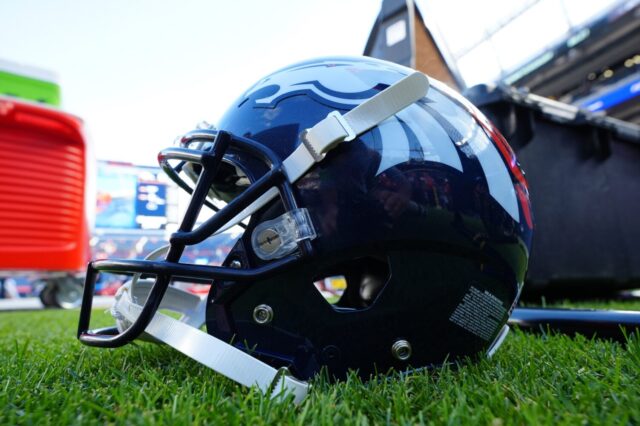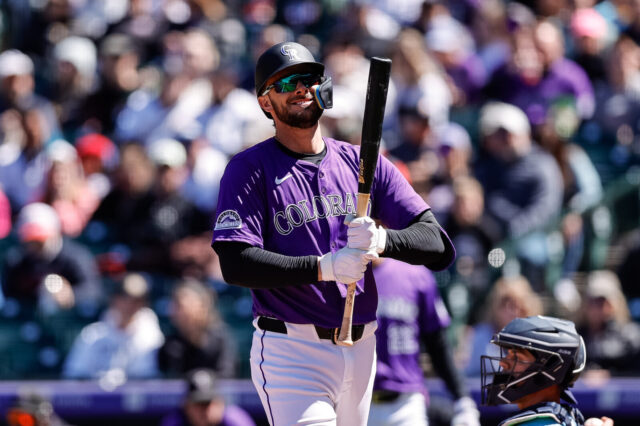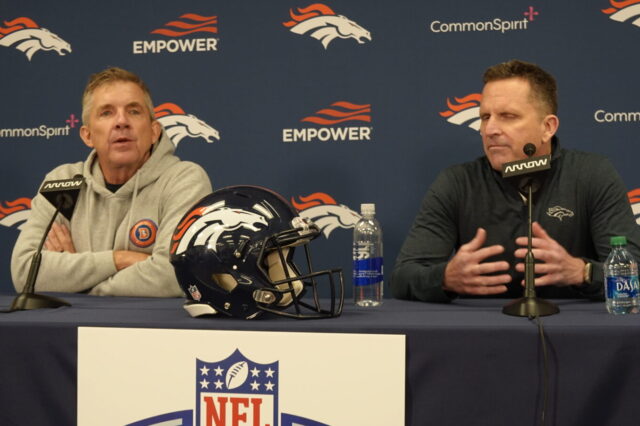Though the chances looked grim that the Broncos’ would match the four-year, $18 million contract the Miami Dolphins offered C.J. Anderson, that’s exactly what they did. And with that kind of money on the table, Anderson is clearly the Broncos’ bell-cow back going forward.
The question, though, is if John Elway had always planned on bring C.J. back into the fold, then why didn’t he use a higher tender in the first place? Had the Broncos chosen to place second-round tender on Anderson, who was a restricted free agent, they would have secured his spot at Mile High without having to pay such a hefty sum.
And it’s not just the question of money that makes so many nervous. Anderson’s inconsistency is a major red flag. While he can look like a top-five running back at times, he’s also gone through stretches, mainly the first half of last season, where he’s been ineffective, losing his starting job to Ronnie Hillman. In fact, Anderson didn’t regain his starting role until the Super Bowl.
With this type of contract, it’s clear that Elway and the Broncos have big plans and high hopes for Anderson. He’ll not only be expected to shine as a player, but he’ll be need to be a leader on and off the field, as well.
Living up to those expectations will fall solely on his shoulders.
During a conference call on Tuesday, Executive Vice President of Football Operations/GM John Elway addressed the questions on everyone’s minds. Here are the answers and statements he has made regarding C.J. Anderson’s return:
On how much C.J.’s late-season play factored into his decision
“That had a lot to do with it, with what C.J. has done to this point, but I think the key thing is when I talked to him I said, ‘We have high expectations for [you].’ We want to continue to get better in the offensive side and he’s going to be a guy who’s going to lead that when it comes to the running game. We have high expectations for him. We think he has the ability to do that, so we’re glad he’s back.”
On if he regrets not using a higher tender on Anderson
“No. We’re glad we got him tied up for four years. We found out what his market value was. Obviously he’d been with [Dolphins Head Coach Adam] Gase here, and so Gase had an interest in him. Miami as well as Chicago showed interest. Overall, when we look at the package, we think it’s a very fair package for what he’s going to do.”
On increased expectations for Anderson
“I think that anybody—anytime that they step up when they come off a rookie contract like he is and they step up, they’re getting paid the money and C.J.’s contract, what he’s getting paid in his contract, the expectations always go up. That’s what I told C.J.: ‘You know what? The expectations of you as a leader as well as somebody that is a part of this organization—all those expectations go up.’ With the rise in pay also goes the rise in expectations, and I think C.J. understands that and he’s ready to handle that.”
On if QB Brock Osweiler leaving in free agency freed up money to re-sign Anderson
“You look at everything. This situation is always fluid, so when you start out, you never know where you’re going to end up. That’s why it’s always fluid. Things always change. I think that obviously with the situation with Brock going to Houston, it did free up a little bit more cash. That made this decision pretty easy.”
On the importance of retaining Anderson for continuity within the offense
“Continuity is important and plus we know C.J. We know what kind of guy he is, what kind of player he is. He’s a guy that we like to have in the locker room and is a guy that will accept the elevation and responsibilities. You come to this and when you have success, it’s always going to be tougher because there are a lot of people that want your people because of the success that we’ve had. We’ve dealt with that year in and year out, and we’ll continue to deal with it. As I’ve always said, we’d love to have everybody back. You’d love to be able to keep everybody that you can, but obviously with the way everything is set up, the supply and the demand out there and the teams that will pay what they’ll play for certain players and what they’ll pay for our players, we try to do the best we can to keep the right people together.”
On whether the nature of Anderson’s contract influences personnel decisions at quarterback
“No. Like I said, it always stays fluid. You never know where it’s going to be. You can try to plan all you want the way you want it to go, but that’s not what happens. Obviously with some of the players that we had leaving, it has opened up some other areas for us as far as different players and what we can do as well as money, too. We’ll continue to look at different options.”



